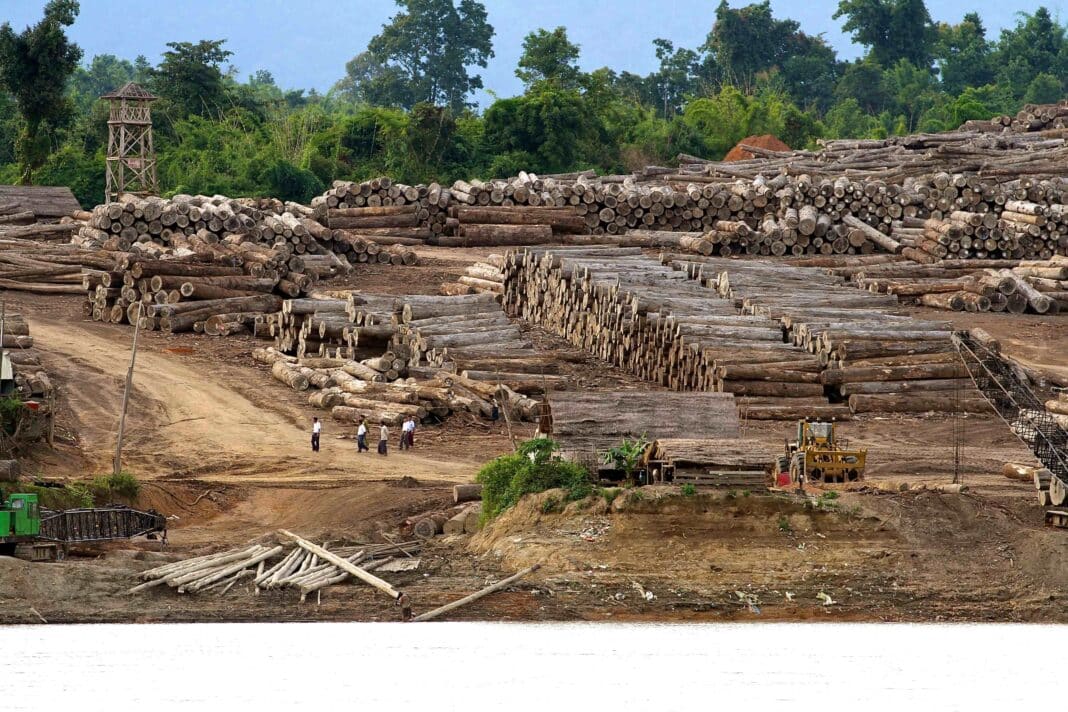Canada has double-downed on its commitment to halt and reverse deforestation by 2030 after the Justin Trudeau government rejoined the Tropical Timber Organization (ITTO), the peak intergovernmental body for the sustainability of tropical forests.
The announcement was made during COP 28’s Nature, Land Use and Oceans Day, with Canada, the world’s third most-forested country, rejoining the ITTO after a nine-year absence.
“Forests are one of our greatest allies in the fight against climate change,” according to Jonathan Wilkinson, Canada’s Minister of Energy and Natural Resources, who was in Dubai for the announcement.
Minister Wilkinson said Canada was “taking an important step to address the twin crises of climate change and biodiversity loss” and “will continue to work with like-minded countries to advance shared goals and best practices to ensure appropriate conservation and the sustainable management of forests, including tropical forests.”
Established in 1994, the ITTO has 75 members, making up 90% of global trade in tropical timber – conceived initially from the International Tropical Timber Agreement (ITTA) in 1983 – and provides a framework for sustainable trade in tropical timber.
Canada, one of its founding members, withdrew from the organisation in 2013 when it withdrew from the United Nations Convention to Combat Desertification (a move revoked in 2016).
“Canada left the treaty in 2013 in part because it does not have tropical forests,” according to Canadian representatives — despite 38 other non-tropical countries being members of the group.
However, trade in imported tropical timber has increased in recent years, with Canada under scrutiny to “do more” to encourage trade of deforested products.
According to the World Wildlife Foundation (WWF), two-thirds of global forest cover loss occurs in the tropical and subtropic regions. It claims vast clusters of deforestation hot spots—also known as “deforestation fronts“— destroy ecosystem services across Latin America, sub-Saharan Africa, Southeast Asia, and Oceania.
It comes after the Japanese Government, the headquarters for the ITTO, pressured the Canadian Government to rejoin the organisation as part of the 2022 G7 meetings in Berlin.
Earlier this year, Canadian press confirmed that the Japanese embassy in Ottawa said the country’s then-state minister of foreign affairs, Takako Suzuki, first raised the matter with International Development Minister Harjit Sajjan last May on the sidelines of the G7.
“Japan expressed its hope that Canada would positively consider rejoining ITTO to promote further co-operation in these areas, which Canada also places great importance on,” the embassy’s climate-change official, Masatoshi Higuchi, said.
He said the organisation “plays an important role in the areas of environment and climate change, one of the priority areas of bilateral co-operation between Canada and Japan” under various agreements the two have signed.
At the time, Canada’s Green Party Leader Elizabeth May said it should join the ITTO as part of its pledge to help developing countries protect tropical forests, a promise enshrined last December at the UN Biodiversity Conference in Montreal.
“We’re looking at the role we can play, for instance, in protecting teak forests and other endangered ecosystems around the world,” she said in an interview.
“The (ITTO) update reports impact global biodiversity and climate.”






